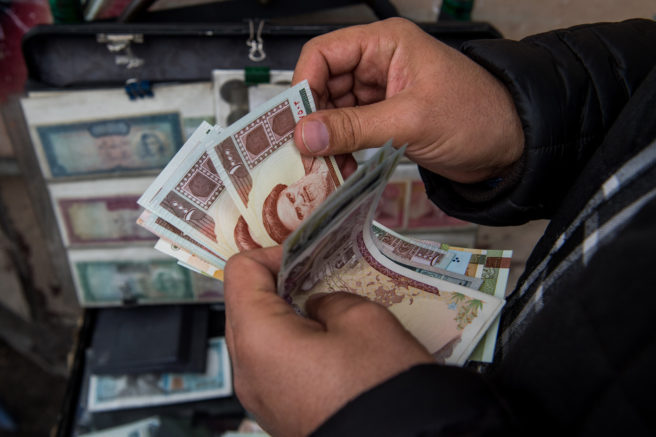Foreign Banks Reliant on U.S. Correspondent Services Should Take Note of New Rules
 We are pleased to present this guest blog by Hdeel Abdelhady, who is a Washington, D.C.-based attorney and Principal at MassPoint Legal and Strategy Advisory PLLC, her boutique law and strategy firm. Ms. Abdelhady focuses on regulatory compliance and transactional matters, including cross-border trade and finance transactions and regulation.
We are pleased to present this guest blog by Hdeel Abdelhady, who is a Washington, D.C.-based attorney and Principal at MassPoint Legal and Strategy Advisory PLLC, her boutique law and strategy firm. Ms. Abdelhady focuses on regulatory compliance and transactional matters, including cross-border trade and finance transactions and regulation.
As Ms. Abdelhady discusses, the Office of Foreign Assets Control (OFAC) issued on June 21, 2019 an interim final rule (the “IFR”) amending provisions of the Reporting, Procedures, and Penalties Regulations applicable to OFAC-administered sanctions programs at 31 C.F.R. Part 501. The IFR became effective upon publication in the Federal Register on June 21. OFAC has requested public comments, which are due by July 22, 2019. The IFR has many important potential consequences, including for foreign banks that rely on U.S. correspondent banking services, as well as U.S. financial institutions facing additional compliance burdens.
As legal counsel to U.S. and foreign banks, other financial services providers, and businesses, Ms. Abdelhady has advised on sanctions, anti-money laundering, anti-corruption, and counter-terrorism finance regulation and compliance under U.S. law and international standards, including the FATF Recommendations and Wolfsberg Standards. She has served as in-house counsel on secondment to banks in the United States and abroad, including in connection with the first major USA Patriot Act enforcement by the Comptroller of the Currency and Financial Crimes Enforcement Network (FinCEN). In addition, Ms. Abdelhady has advised on the establishment of money services businesses and Foreign Banking Organizations in the United States.
Ms. Abdelhady serves on the board of the Washington, D.C. Chapter of the Association of Certified Financial Crime Specialists (ACFCS), is a Fellow of the American Bar Foundation, and is an Adjunct Professor at The George Washington University Law School. Ms. Abdelhady writes frequently on banking, finance, and regulatory compliance matters. Among other publications, Reuters, the World Bank Legal Review, and Law360 has published her work. We hope that you enjoy this discussion by Ms. Abdelhady of this important development. –Peter Hardy
In addition to effectuating technical and conforming amendments, the IFR revises Trading With the Enemy Act (TWEA) penalties and amends reporting requirements and procedures applicable to initial and annual blocked property reports, unblocked property reports, and the unblocking of funds due to mistaken identity. Additionally, the IFR revises reporting requirements applicable to “rejected transactions.” The rejected transactions amendment is the most substantial of the revisions, and is the focus of this update.
Continue Reading OFAC’s Revised Reporting Rules Create New Compliance Requirements for All U.S. Persons
 UK-based Standard Chartered Bank (“SCB”)
UK-based Standard Chartered Bank (“SCB”)  The Office of Foreign Assets Control (“OFAC”) wrapped up 2017 by issuing a series of high-profile designations generally prohibiting U.S. persons from conducting financial or other transactions with the identified individuals and entities, and freezing any assets which these individuals and entities may have under U.S. jurisdiction. Specifically, OFAC, acting in conjunction with a new Executive Order issued by the President pursuant to the
The Office of Foreign Assets Control (“OFAC”) wrapped up 2017 by issuing a series of high-profile designations generally prohibiting U.S. persons from conducting financial or other transactions with the identified individuals and entities, and freezing any assets which these individuals and entities may have under U.S. jurisdiction. Specifically, OFAC, acting in conjunction with a new Executive Order issued by the President pursuant to the 


 On March 24, 2017, the U.S. Department of Justice unsealed an
On March 24, 2017, the U.S. Department of Justice unsealed an